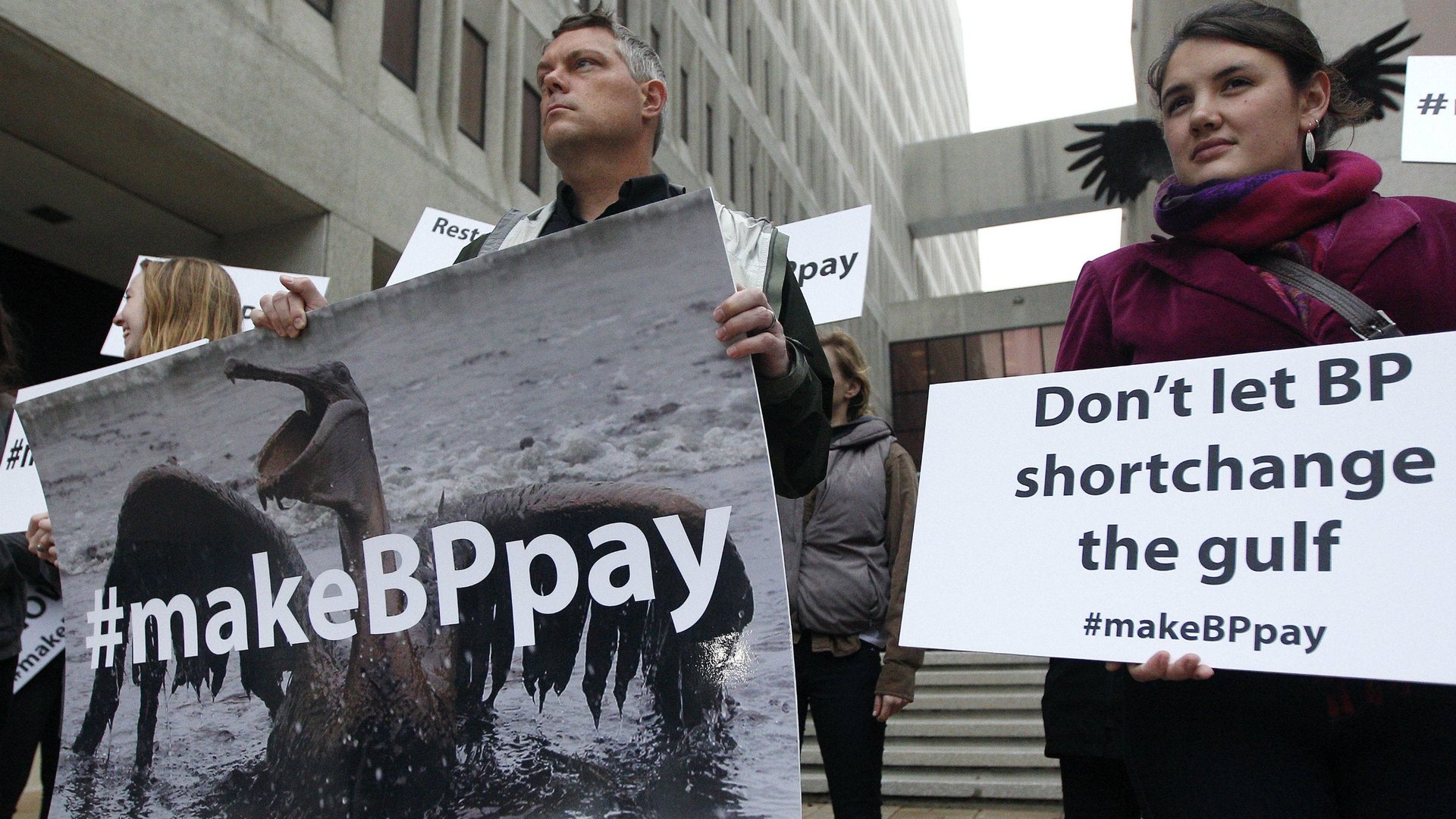First Russia, then Louisiana—a victimized BP in search of a fair break
BP goes before a US appeals court today to argue that it has been swindled out of hundreds of millions of dollars by unscrupulous American businessmen and their lawyers. The objective is to recover the money—involving claims for lost business as a result of BP’s 2010 Macondo oil spill disaster—and to avoid billions more in spurious petitions. But the company is hearing a shortage of sympathy outside the court.


BP goes before a US appeals court today to argue that it has been swindled out of hundreds of millions of dollars by unscrupulous American businessmen and their lawyers. The objective is to recover the money—involving claims for lost business as a result of BP’s 2010 Macondo oil spill disaster—and to avoid billions more in spurious petitions. But the company is hearing a shortage of sympathy outside the court.
The company has set aside $7.8 billion for valid losses, such as lobster fishermen who could no longer ply their trade, according to briefs filed with the New Orleans court. But some 10,000 new claims have poured in every month, and BP thinks not all are genuine. The appeal includes a partial, 25-page list of what it asserts are fictitious and inflated claims.
“Thousands of claimants that suffered no losses are coming forward in ever-increasing numbers, seeking and obtaining outrageous windfalls and making a mockery of what was intended to be a fair and honest court-supervised settlement process,” BP says in its brief.
A subtext of the case is the oil company’s unusual history of victimization by hard-edged and slippery actors in rough-and-tumble parts of the world. Until a year ago, BP had spent much of a decade in an often-humiliating and sometimes dangerous business war in Russia in which its executives occasionally had to go into hiding or just lay low. Now, BP asserts that it has been taken advantage of in the US, specifically in Louisiana.
This is not easy for a self-respecting oil major to admit. Since they generally earn tens of billions of dollars in profit every year, the majors are the targets of frequent lawsuits, contract challenges and other attempts to get a share of their earnings. Their main defensive strategy is to tough it out, wearing down opponents with long litigation, to send the message that they will not be an easy mark. ExxonMobil is especially legendary for battling lawsuits for decades.
In this case, BP says that, rather than the usual tack, it tried to do the right thing by rapidly coming to a settlement with businessmen who lost income because of the spill. But rather than gratitude, it claims, it has encountered bad actors who have enriched themselves, and a judiciary that has so far backed up the scoundrels, creating the conditions for an “indelible black mark on the American justice system,” BP’s brief argues. Specifically, it alleges that the claims administrator, Patrick Juneau, has interpreted the terms of the settlement in such a way that even claims unrelated to the spill are admissible, and that a lawyer working for Juneau was in cahoots with a local law firm.
Ahead of today’s hearing, a US district judge on July 2 appointed former FBI director Louis Freeh to investigate BP’s assertions.
But BP’s arguments are attracting some scorn. It is, after all, a gigantic, worldly oil company defended by an army of shrewd lawyers, hardly a weak innocent. Bloomberg BusinessWeek quotes Danny Abel, a local New Orleans plaintiffs lawyer not involved in the case who is among those unsurprised by the flood of claims: “This is Louisiana after all. A big foreign company with deep pockets and you’re surprised there’s a feeding frenzy? Come on, man.”
Alabama attorney-general Luther Strange has little patience for BP’s complaint. The company’s lawyers themselves negotiated the language in the settlement program, he points out. “They made a bad deal and now they’ve got to live with it,” says Strange.
Likewise, the Financial Times says in a July 5 editorial that the company itself bears some culpability. It said,
In the weeks after the [Gulf of Mexico] accident, it opened its wallet a bit too much, creating the impression that it was a soft touch. And the settlement appears loosely drafted. How else to explain the different interpretations of it?
Meanwhile BP has mailed letters to lawyers representing Gulf of Mexico spill claimants advising them to hold on to their cash payouts as they may have to refund them to the company, prompting some to accuse it of intimidation. Presumably the company is also checking its own cash on hand in case the decision goes the other way.